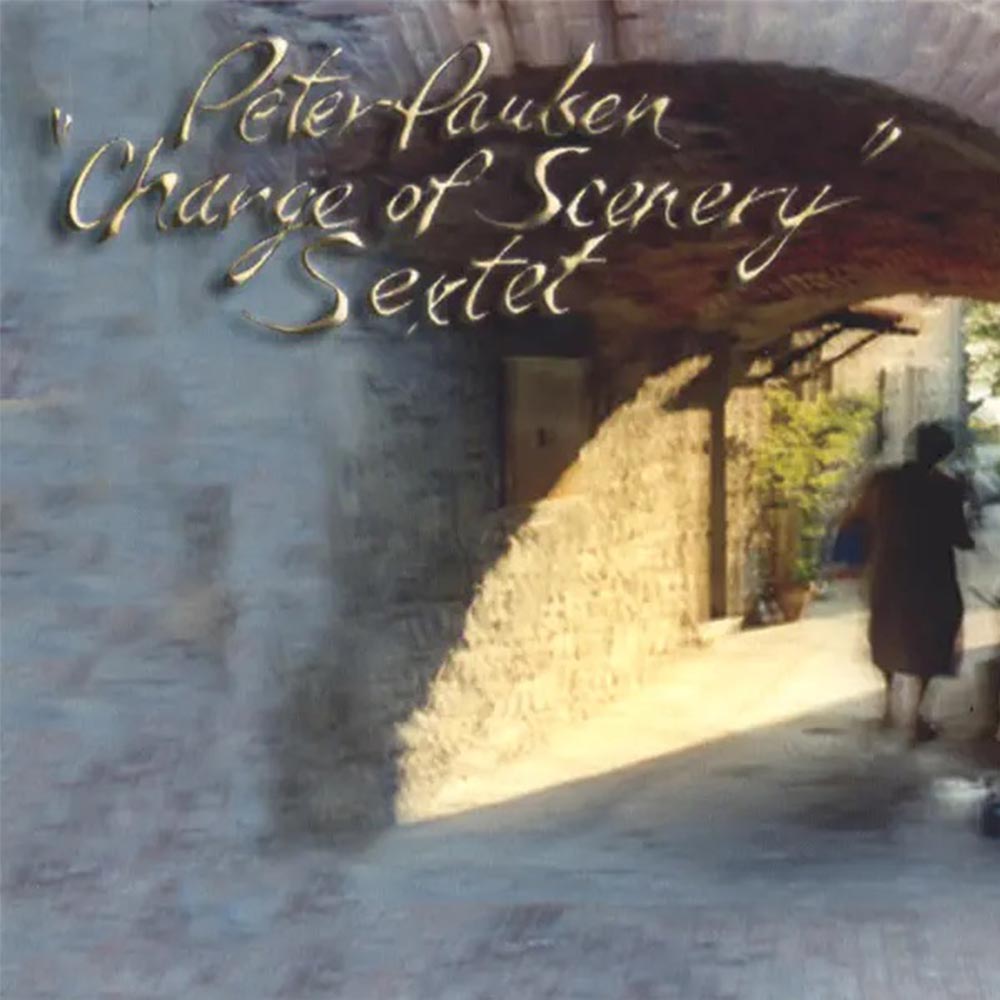Reviews

Building on the success of Tri-Cycle (Wahbo, 2005), Peter Paulsen expands from piano trio to multi-horn sextet. It’s more ambitious, not just for the larger palette from which the bassist draws, but because, unlike Tri-Cycle’s mix of originals and craftily arranged material by others, Change of Scenery consists entirely of Paulsen originals, with the exception of an innovative arrangement of Wayne Shorter’s “Nefertiti” and the collectively composed/improvised “Random Width.”
Continue Reading
Paulsen’s music, despite its detailed and heady nature, lives and breathes with plenty for the heart as well as the mind. The title track features horns layering long lines over Paulsen and Hochmiller’s doubled counterpoint and Mullen’s delicately interactive response. Despite spare and melody-centric piano and bass solos, Bacas’ lithe soprano raises the temperature on this elegantly restrained piece of chamber jazz.The knotty and complex intro to “Tight Lipped,” with its stops and starts, shifting bar lines and vivid dynamics, expands outward into a hard-swinging solo section for soprano, trumpet and piano. With more colors at Paulsen’s disposal, a clear defining point is how much space there is for interaction, despite his predilection for long-form composition.
Paulsen makes great use of subset possibilities inherent within the ensemble. The balladic “In and Of Itself” begins with soprano sax and Paulsen’s arco meshing seamlessly. As the group gradually enters, the cumulative and revealing effect feels uncannily inevitable. “Triple Pairs” extends the subset concept further, with Paulsen’s robust pizzicato introducing a nearly fourteen-minute 7/4 tune that combines unison horn lines, jagged piano support and Riley’s bottom-heavy bass clarinet. Written sections delineate a free exchange between bass clarinet and sax, and a more brooding duet for piano and flugelhorn, before Paulsen’s second solo leads the sextet to an idiosyncratic conclusion.
“Random Width” may be collective spontaneous composition, but it’s the hardest swinging track on the disc, at least at the start. Bacas’ visceral tenor solo leads into an open-ended flugelhorn/piano/bass/drums quartet before moving into darker territory, with Mullen’s malleted tom-toms and cymbals underscored by Paulsen’s arco. The rest of the group gradually reenter with intertwining lines and harmonies that are all-the-more remarkable for their in-the-moment creation.
Paulsen’s arrangement of “Nefertiti” draws a clear inspirational line between his own cerebralism and that of Shorter’s. Still, like the legendary saxophonist, Paulsen’s intellectual approach is never at the expense of approachability. Swinging fiercely during solos from Meashey, Bacas and Hochmiller, it’s a fitting closer to an album that demonstrates a potent mix of compositional complexity and open-minded expression. Paulsen’s obviously someone to watch, with the evolutionary Change of Scenery creating an even clearer view of this talented bassist/composer’s musical personality.

Peter Paulsen is a versatile double bassist, at home playing jazz or classical styles, he’s a dedicated educator, and if that’s not enough, he’s also an imaginative composer – Paulsen’s compositions come out of the jazz tradition, sometimes very literally as in B’sB, a famous Bird blues; but at the same time, he acknowledges classical influences and uses classical composition techniques.
Chris Kosky, Bass World
Paulsen certainly rose to the opportunity of utilizing the expanded sonic possibilities inherent in the sextet format following 2005’s interesting ‘Tri-Cycle’ release, and he has made it clear that he is a new voice in the world of jazz who should be watched closely.
Brad Walseth, JazzChicago.net






